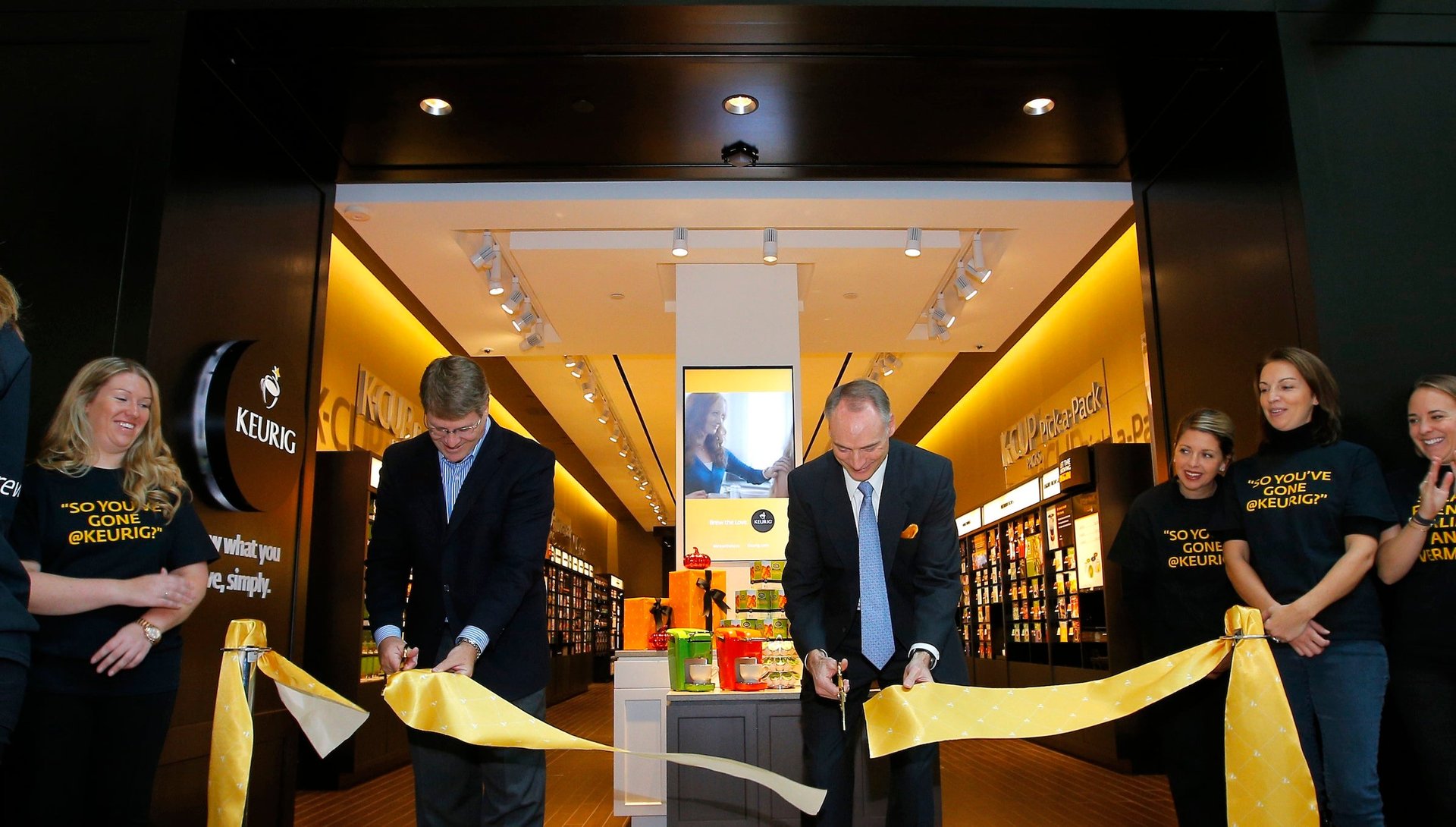Keurig’s new machine won’t stop K-cup piracy
In just a few short years, Keurig Green Mountain has gone from a tiny brand to near-ubiquity. It’s the largest coffee brand in the United States by retail sales, and its single-serving machines are wildly popular. But a major issue facing the company, which makes most of its money selling K-cup pods, is copycats that make pods without its license or participation. Pods that aren’t licensed by the company currently make up about 14% of the market.


In just a few short years, Keurig Green Mountain has gone from a tiny brand to near-ubiquity. It’s the largest coffee brand in the United States by retail sales, and its single-serving machines are wildly popular. But a major issue facing the company, which makes most of its money selling K-cup pods, is copycats that make pods without its license or participation. Pods that aren’t licensed by the company currently make up about 14% of the market.
The company lost its original monopoly on K-cups in 2012. Now it’s planning to release Keurig 2.0 brewers, which will have internal cameras that can read a tag and lock out unlicensed pods. The company claims this is to ensure beverage quality. Think of it as the coffee equivalent of the music industry’s digital rights management.
The generic competitors aren’t going down without a fight. TreeHouse Foods, the biggest manufacturer of private-label K-cups, filed a lawsuit over the new brewing machine. It argues that Keurig’s moves are cutting out competition, keeping prices high, and reducing selection. A spate of similar battles played out recently in Europe, where Nestlé, which owns the coffee-pod company Nespresso, faced legal challenges in several countries to its strategy of trying to prevent competitors using its machines.
Even if the courts don’t favor Treehouse, the company’s boss says he’s not too worried. At Citi’s consumer conference last week, Treehouse CEO Sam Reed was asked about new machine. He said that his company was sure it could respond very quickly:
Our analysis indicates that under any circumstance that it will be a matter of months, not years, before we replicate the technology for the cups or the pods. And we expect that of the five new single-serve coffee brand-name appliances that are coming to the market in the fourth quarter, at least some of those will replicate the technology as well.
That’s a pretty bold statement. Keurig has been somewhat cagey about exactly what technology is going into the brewing machine, and the combination of camera and packaging that it’s going to use to try to enforce its license.
Treehouse and other unlicensed K-cup manufacturers will have to work fast or risk losing their foothold in a giant market (about $9 billion globally) that offers extremely high margins. A pound of coffee might retail for four or five times its cost after it’s been split up and packaged into pods. That is, of course, the same reason that Keurig is fighting so hard to maintain control. The pods are so profitable that the company sometimes sells its machines at a loss.
Keurig has managed to sign partnerships with more than 40 brands, some previously unlicensed, perhaps because they’re concerned that the new brewer will be a difficult technological puzzle to solve. But brands such as TreeHouse that are making lot of money selling K-cups derive most of their advantage from pricing lower, so the incentive will be strong to crack the code.
TreeHouse’s complaint (pdf) alleges that Keurig’s new brewing machine and efforts to phase out the older models will force consumers to pay 15% to 25% more for K-cups. It also asserts that Keurig’s licensing agreements with other coffee brands are restrictive and anticompetitive, limiting where and how pods can be sold in order to preserve its own sales.
Keurig did not respond to a request for comment before publication.